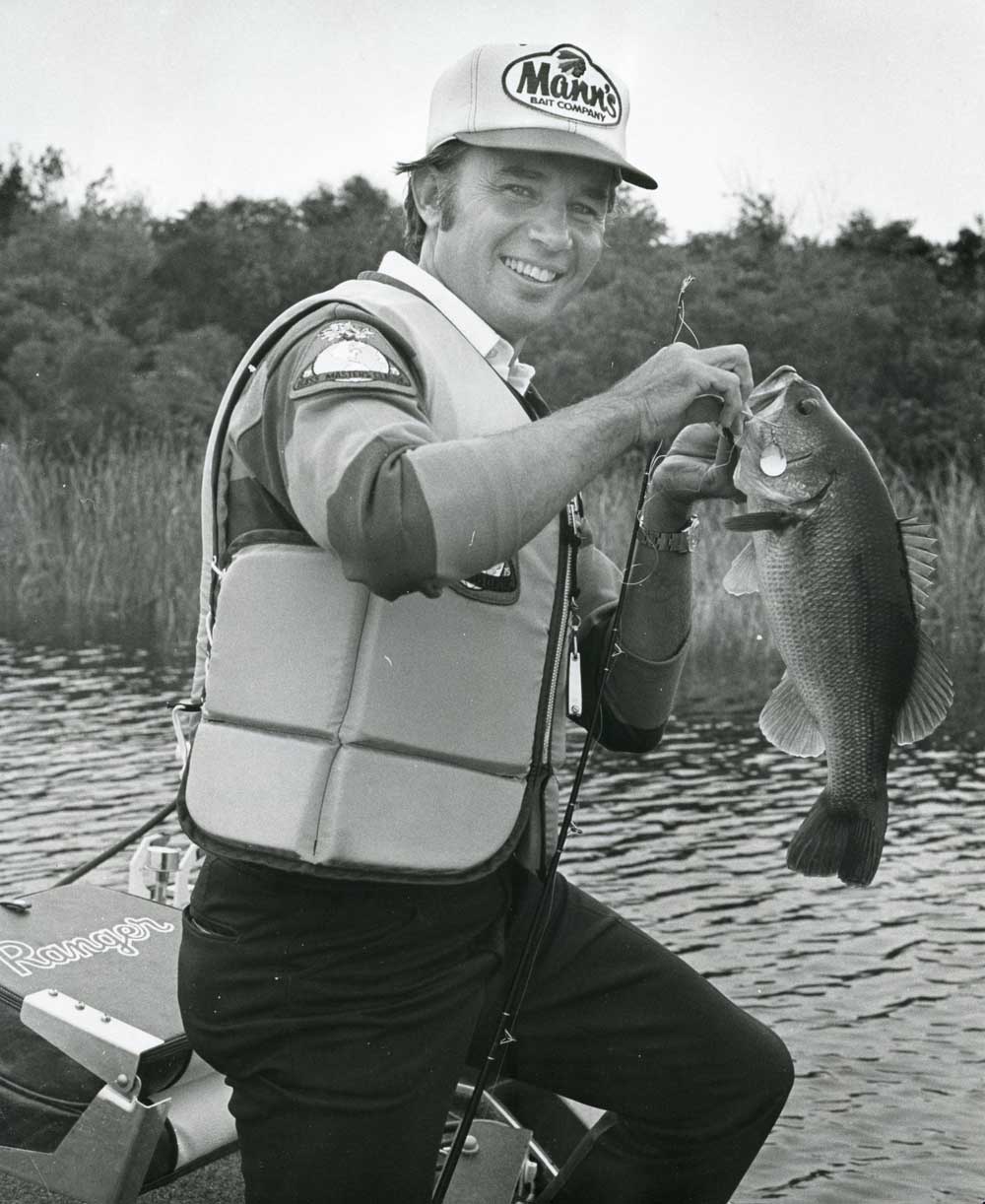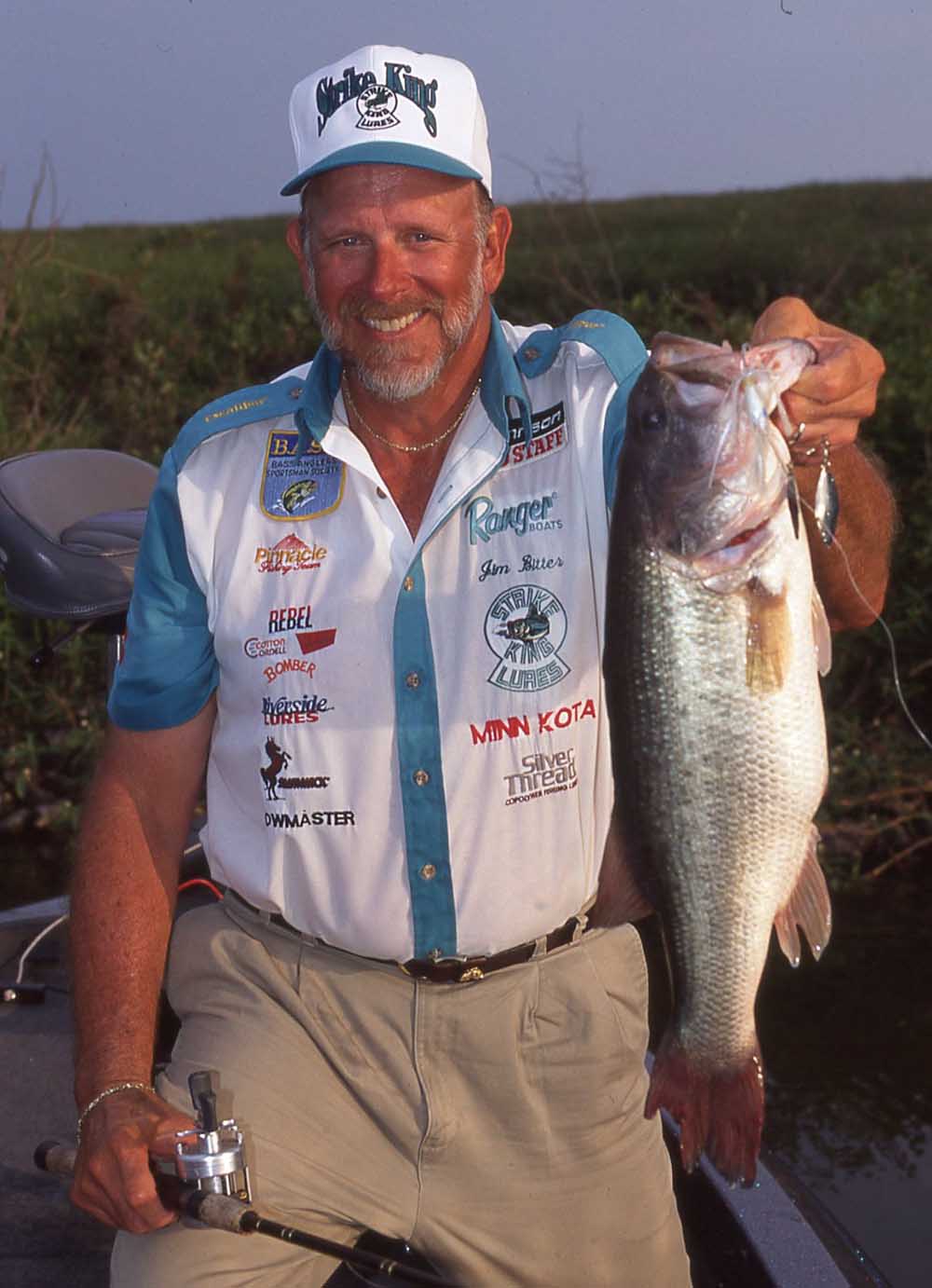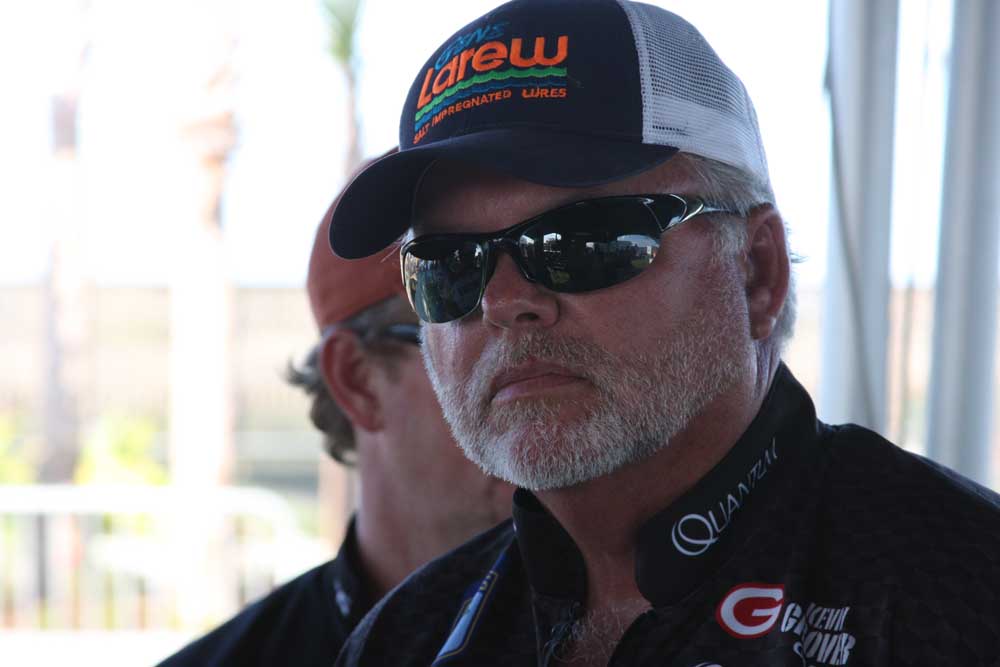The Bassmaster Classic is a tournament where heroes are made, winners become household names and careers are galvanized. Every B.A.S.S. fan can recount the Classic exploits of Bobby Murray, Rick Clunn, Bryan Kerchal and Kevin VanDam. Their stories are legend.
But there’s another side to that same coin, and it belongs to the anglers — many of them every bit as talented as their championship-winning counterparts — who fell short and missed their chance at Classic immortality.
In chronological order, here are three Bassmaster Classic collapses.
1975
The 1975 Bassmaster Classic on North Carolina’s Currituck Sound was supposed to belong to Paul Chamblee, a man who would qualify for all six Classics between 1974 and 1979 and who just might be the best angler in B.A.S.S. history that never won a tournament. Chamblee lived in Raleigh, and though he had little experience on the tournament waters, he lived up to early predictions with a huge catch on the first day.

Chamblee used a black single-spin spinnerbait to take a limit of eight bass weighing an impressive 26 pounds, 1 ounce on Day 1. It was enough to grab the lead by almost four pounds over lure-making legend Tom Mann. Jack Hains, fishing his first Classic, was more than 10 pounds back, in 10th place.
Day 2 wasn’t quite as good to Chamblee. He was one short of a limit with 12-6, but things were still looking up. Despite the slower fishing, his lead was growing. He was now 5-15 ahead of his closest competitor, but that angler was now Hains, who came on strong in the second round. The biggest thing going for Chamblee was that a cold front had passed through the area, making fishing extra tough. If he could post any kind of catch in the finals, he’d almost certainly win. As one competitor put it, “The good Lord is looking out for Paul Chamblee.”
But it seems He must have been looking out just a little bit more for Hains, ironically now a preacher, because Chamblee struggled mightily on the final day. In fact, he failed to catch a keeper, while Hains caught six that weighed 12-12, giving him 45-4 for the tournament and the win.
To add financial injury to the Chamblee’s insult, the 1975 Classic was winner-take-all — the last of five such championships — and Hains got every nickel of the $15,000 prize money.
1989
If you look at the list of Classic winners, you’ll see that Hank Parker won the 1989 contest, but if you check a little more closely you’ll find that it’s the championship Jim Bitter lost. In the annals of bass fishing, no other angler and fish exemplify “the agony of defeat” quite like Bitter and a small keeper bass from the final round.
Not only did Bitter lead the first two days of the 1989 Classic, he also had the heaviest catch on both days. With a lead of nearly 4 pounds going into the final day of some tough fishing on the James River, he could sew things up with a limit.
And he had one fairly quickly. Swinging his fifth keeper into the boat, Bitter confidently walked toward the livewell, feeling good about his chances.
Then Tim Tucker, the late senior writer for Bassmaster Magazine and Bitter’s press observer for the day, asked if he was sure the fish was 12 inches long.
Well, Bitter was pretty sure, but not certain, so he stepped back toward the bow of the boat, measured the fish — it was comfortably over 12 inches — and turned to take it to the livewell.
Just at that moment, the fish twisted slightly in his hand, and Bitter dropped it. It hit the gunnel of the boat and bounced back into the river.
It was the last bass he caught all day.
At the weigh-in, Bitter watched in horror as his catch fell 2 ounces short of Hank Parker’s three-day total. Bitter had the win in hand — quite literally — but it slipped away. Almost 25 years later it is still the biggest blunder in tournament fishing history and Bitter ranks as the Bill Buckner of fishing, a great competitor best known for one unfortunate moment.
1990
Aaron Martens gets a lot of publicity by virtue of his four runner-up finishes in the Bassmaster Classic, and it’s true that the Natural has had his share of close calls. But Tommy Biffle may be even more deserving of the bridesmaid title in bass championships. Not only has he finished second in two Classics, but he’s done it three other times in the FLW championship.
It all started in 1990 on the James River. That was the third straight year bass fishing’s greatest championship was held on the Virginia waterway, and each of the previous two events had been won in difficult to reach backwaters. Biffle figured the trend would hold and was catching his bass far up the Appomattox River. He took the first round lead by pitching jigs and worms to shallow cover.

By the time the second round ended, Biffle had padded his lead and was up by 6 pounds, 10 ounces. It was clearly his tournament to win.
Unfortunately for Biffle, his productive area was getting muddy due to boat traffic, and he had no backup plan. Rather than abandon the area that had produced his lead, he decided to stick with it and boated just one bass weighing 1-14.
It wasn’t enough.
That Biffle would be passed after struggling in the finals might not be so shocking except for how it happened and who went on to win the tournament.
Rick Clunn ended the first day in 14th place, nearly 9 pounds behind the leader. Things didn’t get any better on Day 2, either. He had a limit, but they weighed less than 7 pounds and that put him in 10th place, 9-10 behind Biffle. If Clunn was going to have a chance, everything would have to go his way.
And it did.
Not only did Biffle struggle in the finals — along with just about everyone between Clunn and the leader — but Clunn had the best day of the tournament. He was in “the zone,” working his square bill crankbaits around cypress trunks and knees for a limit that weighed 18-7. Not only was it enough to surpass Biffle, but it eclipsed him by almost 7 pounds!
It was Clunn’s fourth Classic title.

